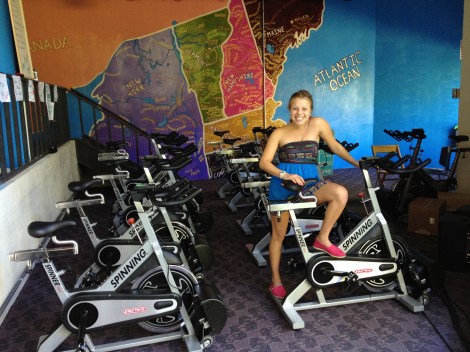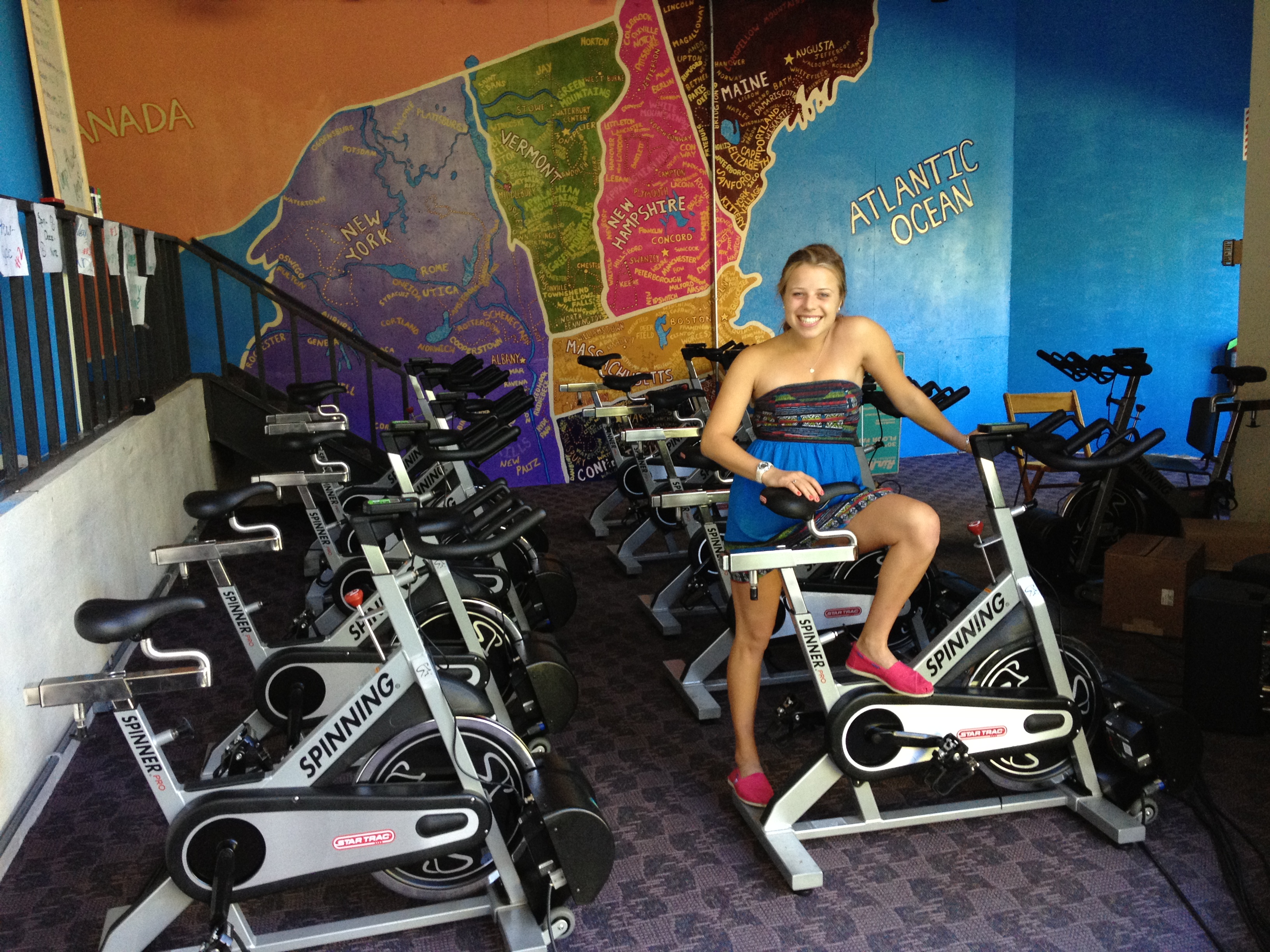
Astrid Schanz-Garbassi.
Picture 10 spry undergraduates pedaling their quads into a burn on a set of stationary bikes. An 11th student leads the spin class from a bike in front, yelling that none of them need their glutes, anyway, while Lady Gaga’s “Born This Way” thumps through their eardrums. Now imagine we could actually do something with all that energy they’re using to go nowhere. Like keep the lights on, for example.
That’s the idea behind YouPower, a bike room that opened last April on the Vermont campus of Middlebury College. It’s the brainchild of Astrid Schanz-Garbassi, who graduated in 2012. “My hope was that Middlebury students could start thinking of energy in almost the same way we think of, and are able to budget, our money,” Schanz-Garbassi says. “We know how much everything costs, but we have no idea what we’re doing with energy.”
The YouPower room is equipped with 11 Star Trac Pro spinner bikes, each fitted with alternators built by a Connecticut company called The Green Revolution. The alternators are connected to an inverter box that, when plugged in, sucks in the energy produced by the spinning bikes and “shoots it back into the wall,” Schanz-Garbassi says.
Students lead spinning classes either once a day or twice a week, depending on the season, and the room is open for three hours every day outside of scheduled classes. A flat screen TV at the front of the room shows cyclists how much energy they’re producing. On average, Schanz-Garbassi says, a rider generates between 100 and 250 watts. At that rate, it would take a peloton of 280 people to power the average home in Vermont and other cold climates. To power a well-insulated, solar-powered home, it would still take a pack of 70.
Schanz-Garbassi would know. She dreamed up the idea of YouPower her freshman year, but put it on hold for two years while competing in the Solar Decathlon, a biennial competition put on by the U.S. Department of Energy in which teams of students compete to build the most super-efficient, stylish solar-powered house. After she finished competing in the 2011 decathlon, Schanz-Garbassi was a senior with only months left to create her energy-generating, spinning-bike room.
So she met with the vice president of administration, the director of student facilities, the director of the athletic department, and Middlebury’s president — and after her crash course in corporate politicking, convinced the school to give her the empty space next to The Bunker, the on-campus nightclub, in the basement of a building that also holds offices and classrooms. Friends in student government helped her get the $50,000 needed to purchase the bikes, alternators, and inverter box.
Call it stimulus, call it pork, call it the allocation of surplus funding toward a project that an all-student survey showed strong interest in — by April 30, 2012, after eight hours of assembly, Middlebury held its first fully wired spin class.
A few weeks later, YouPower held its first “Watt-A-Thon” to spread the word about the new set-up. Groups of 10 students on teams with names like “Watt is Love, Baby Don’t Hertz Me” and “Ride Me Maybe” each reserved one of the 11 bikes, rotating riders for four hours. In that time, 110 students produced 7.9 kilowatt-hours, enough electricity to power the entire state of Vermont! Not really. It was actually enough to power 150 light bulbs.
Gives you an appreciation for how much energy goes into making your morning cup of hot chocolate, doesn’t it?
Middlebury’s stationary cyclists are still a long way from powering the building, much less paying off the bikes, the alternators, the inverter, and one sweet mural of the bike trails of New England. (That’s what Middlebury’s $57,075 annual tuition is for.)
Keeping the room open with just 11 bikes is “a losing calculation right now,” Schanz-Garbassi admits. But it’s not about the Benjamins: “This was an educational tool.”
Make that an educational tool with fun built in: During Middlebury’s January session this year, multiple spin classes ran every day, including the weekends. And if students can pedal their way to greener power for a solid month, there’s nothing stopping them from continuing all year — or following Schanz-Garbassi’s lead and building more and bigger projects in the future.




